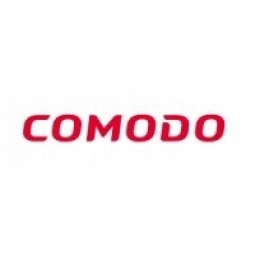Comodo

Overview
|
HQ Location
United States
|
Year Founded
1998
|
Company Type
Private
|
Revenue
$100m-1b
|
|
Employees
51 - 200
|
Website
|
Twitter Handle
|
Company Description
Comodo provides Internet security solutions. The Company offers e-merchant solutions such as website scanners, mobile security, antivirus solutions, Internet security software, and email security solutions.
IoT Snapshot
Comodo is a provider of Industrial IoT sensors, cybersecurity and privacy, networks and connectivity, and infrastructure as a service (iaas) technologies, and also active in the consumer goods, e-commerce, finance and insurance, and national security and defense industries.
Technologies
Use Cases
Functional Areas
Industries
Services
Technology Stack
Comodo’s Technology Stack maps Comodo’s participation in the sensors, cybersecurity and privacy, networks and connectivity, and infrastructure as a service (iaas) IoT Technology stack.
-
Devices Layer
-
Edge Layer
-
Cloud Layer
-
Application Layer
-
Supporting Technologies
Technological Capability:
None
Minor
Moderate
Strong

Supplier missing?
Start adding your own!
Register with your work email and create a new supplier profile for your business.
Case Studies.
Case Study
Boiling Springs Savings Bank Enhances Customer Security with Comodo's SVT Technology
Boiling Springs Savings Bank, a financial institution with over $1 billion in assets, faced a significant challenge in protecting its customers from online fraud. With the rise of online banking, the bank and its customers were increasingly exposed to identity theft problems. Fraudulent or phishing sites often mimicked the bank's website, making it difficult for customers to distinguish between the authentic site and the fake ones. This issue was further exacerbated by the fact that 24% of consumers refused to conduct business online due to fear of online fraud, and 20% didn't open emails from financial institutions. Furthermore, 65% of consumers considered security protections as a key factor in their choice of bank. The bank needed a solution that would allow customers to verify the authenticity of its website and protect their sensitive information.
Case Study
Family Fund's Battle Against Spam: A Comodo Antispam Gateway Case Study
Family Fund, the UK's largest provider of grants to low-income families raising disabled or seriously ill children and young people, faced a significant challenge with their email system. In March, they reached out to Comodo's Business and Enterprise Support Team as several of their users were unable to send any emails through the Antispam Gateway's outbound email filters. An initial investigation revealed that these user accounts were attempting to send two to four emails per minute, leading to the Antispam Gateway's sending limits locking these accounts. Further investigation revealed that the existing anti-malware provider had allowed these user's computers to become infected with a spam-sending virus. This situation threatened to disrupt their communication with various stakeholders, including families, donors, and suppliers.
Case Study
Building Trust in Online Retail: Hayneedle's Success with Comodo EV SSL
In the highly competitive online retail industry, particularly in the home décor sector, establishing trust with potential customers is a significant challenge. With a wide range of e-merchants, from national retailers to small, one-person businesses, consumers often experience anxiety about who they can trust for their online purchases. Successful e-merchants understand that while effective advertising, a well-merchandised site, and competitive pricing are important, converting visitors to buyers, especially for non-national brands, also requires establishing a level of trust. This is particularly crucial for online transactions where customers need to feel secure in sharing their personal and financial information.
Case Study
Comodo's PCI Compliancy Scanning Boosts Merchant-Accounts.ca's Business
Merchant-Accounts.ca, a Canadian merchant account service provider, was facing a challenge in providing its customers with an easy-to-understand and cost-effective PCI compliance solution. The PCI compliance, a new security standard for online retailers, was technically complex and Merchant-Accounts.ca needed to offer a solution that included mission-critical PCI scanning. The solution had to be affordable and technically supported for small to mid-sized Canadian businesses that may not have a large budget or a dedicated technical staff. Moreover, Merchant-Accounts.ca wanted to reduce the risk of customers migrating to other service providers in search of a PCI compliant scanning provider. Prior to partnering with Comodo, Merchant-Accounts.ca had been providing their clients with the Approved Scanning Vendor list provided by Visa and MasterCard. However, this approach proved to be inadequate as customers had to spend a lot of time sorting through diverse price and service offers, leaving them unsupported with a slew of options to research.
Case Study
Enhancing E-Commerce Trust and Security: A Case Study of Zamberg.com
Zamberg.com, a leading distributor of high-quality German grooming products, was facing a significant challenge in earning the trust of new customers on their website. Despite being the largest distributor of products made by craftsmen in Solingen, Germany, and the exclusive U.S. distributor for many European products, the company was struggling with the common consumer fear of online fraud. This fear, which affects 24% of consumers, stems from the potential for scams, phishing, pharming, and 'man in the middle' attacks. The lack of a distinguishing method to assure customers of the website's authenticity and security was hindering Zamberg.com's potential for higher sales growth.
Case Study
Znappz Enhances Security with Comodo Free SSL
Znappz, a software developer based in the UK and Norway, was facing challenges with their hosting services. They were not satisfied with the security provided by their previous hosting company for their domain. As a company that specializes in mobile games and apps, ensuring the security of their servers was of utmost importance. They needed a solution that could provide robust security for their API server and reassure their users about the safety of their data. The challenge was to find a reliable and cost-effective solution that could be easily integrated into their existing system.



